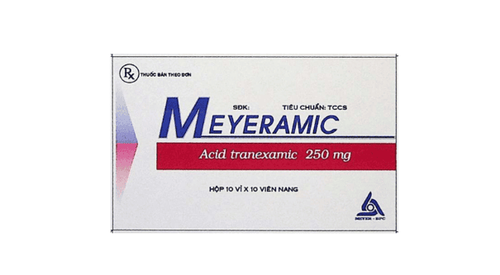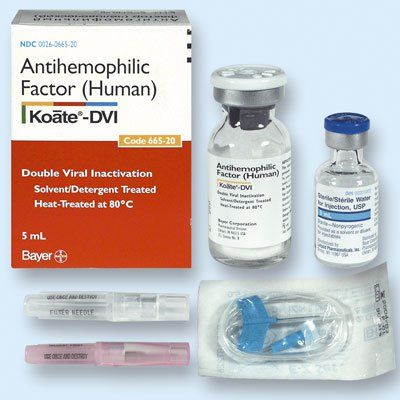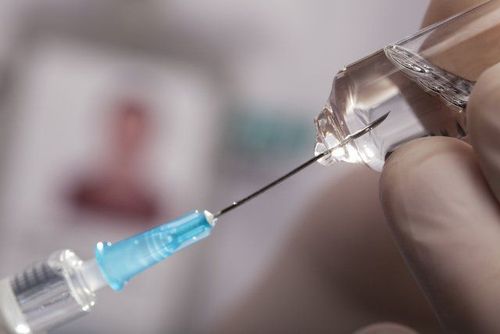This is an automatically translated article.
Posted by Doctor Children's Center - Vinmec Times City International Hospital
Hemophilia is an X-linked hereditary bleeding disorder caused by a decrease in factor VIII (hemophilia A) or factor IX (Hemophilia B) leading to thromboplastin production, which slows blood clotting. The frequency of hemophilia is about 20/100,000 men, 80-85% of patients are Hemophilia A.
1. Mechanism of hemostasis
Blood circulates in the body through a system of ducts called arteries, veins, and capillaries. Bleeding begins when the vessel is damaged and blood escapes. At that time, the blood vessel immediately constricts to slow down the bleeding process, then blood cells called platelets arrive at the lesion to form a plug, which stops the bleeding. Next, more coagulation factors in the plasma are activated to form a clot that covers the platelet plug, making the plug stronger and stopping bleeding.
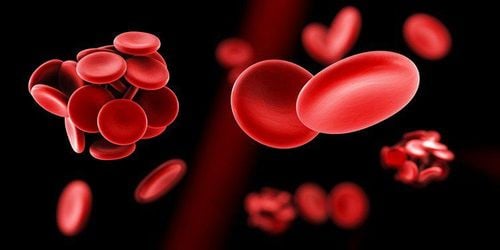
2. Why do people with hemophilia bleed longer than others?
In patients with hemophilia, a clotting factor is missing, or the concentration of that factor is low compared to normal people, which makes it difficult for blood clots to form. Therefore, when bleeding, the blood flows longer than usual. There are 13 clotting factors in plasma, so each factor is named and written with a Roman numeral
3. Diagnosis of Hemophilia
3.1 Clinical diagnosis
Patient is male, symptoms often appear from childhood.
The main symptom is bleeding anywhere on the body, bleeding spontaneously or after trauma, after surgery such as circumcision, umbilical cord bleeding in newborns. In young patients when learning to walk, crawling causes bruising under the skin, painful swelling of the joints, and muscle hematomas. Prolonged bleeding in the mouth, tongue, or nose. Over time, children grow up with recurrent musculoskeletal bleeding causing joint deformities, muscle atrophy leading to disability affecting quality of life. There are patients with severe bleeding such as gastrointestinal bleeding, life-threatening brain hemorrhage.
Family history: there is a male relative on the mother's side with prolonged bleeding.
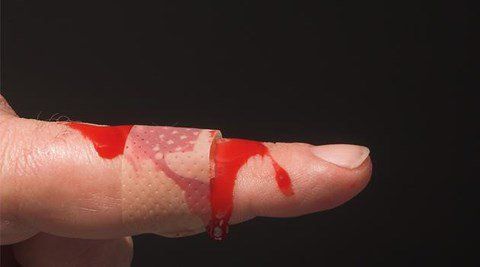
3.2 Tests
APTT long. Quantification of factor VIII (Hemophilia A) or IX (Hemophilia B) decreased less than 40%. The platelet counts, PT, TT, Fibrinogen, von Willebrand factor quantification were normal.
3.3 Diagnosis of degree
In normal people, the concentration of factor VIII or IX is 50 _ 150%. Based on the concentration of factor VIII or IX of the patient, it is divided into 3 levels: Mild factor VIII or IX is 5 - 40%.,severe Moderate is 1-5%, severe is <1%.
3.4 Differential diagnosis
Differential diagnosis of Hemophilia A with von wilebrand disease: von Willerbrand disease also exhibits prolonged bleeding and decreased factor VIII, but there is a difference in seeing both sexes, showing mucosal bleeding, rarely bleeding joint.
Laboratory tests: Long APTT, reduced factor VIII, decreased vWF factor, decreased platelet aggregation with Ristocetin.

4. Other causes of prolonged APTT
Due to the deficiency of other factors participating in the endogenous coagulation pathway such as factor XI deficiency (also known as Hemophilia C), abnormal bleeding after surgery, decreased factor XI quantification, the disease is common in both men. and female. Deficiency of factor XII/prekalikrein/or high molecular weight lininogen is reduced Due to inhibitors: + Acquired hemophilia in some patients with some underlying diseases such as cancer or autoimmune disease.
+ Antiphospholipid antibodies: Expression of embolism in young people, recurrent miscarriage.
The above summarizes the diagnosis of hemophilia, a recessive congenital disease. disease in men, women carry the disease gene. The disease manifests itself at an early age, the main symptom is bleeding longer than usual (slow blood clotting) in the organs, so parents should pay attention to children with symptoms of spontaneous bleeding, bleeding that takes a long time to stop. combined with a family history of sick men in the mother's family, the child should be taken to a medical facility specializing in hematology to detect and plan early treatment to avoid severe sequelae affecting life, life quality.
Please dial HOTLINE for more information or register for an appointment HERE. Download MyVinmec app to make appointments faster and to manage your bookings easily.





